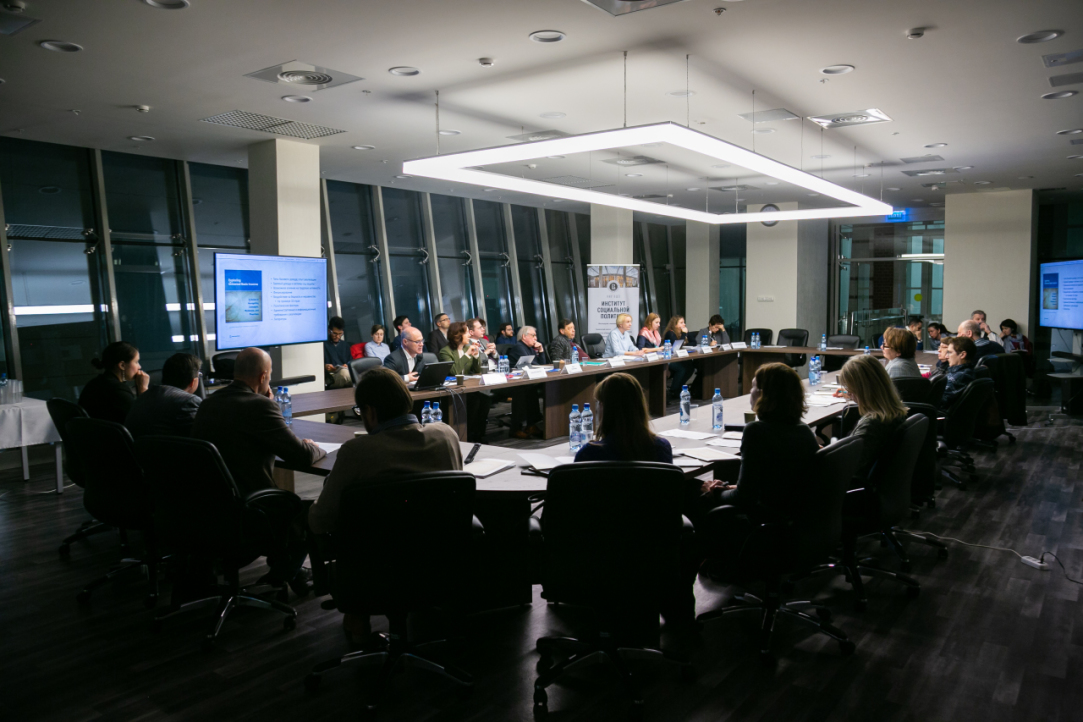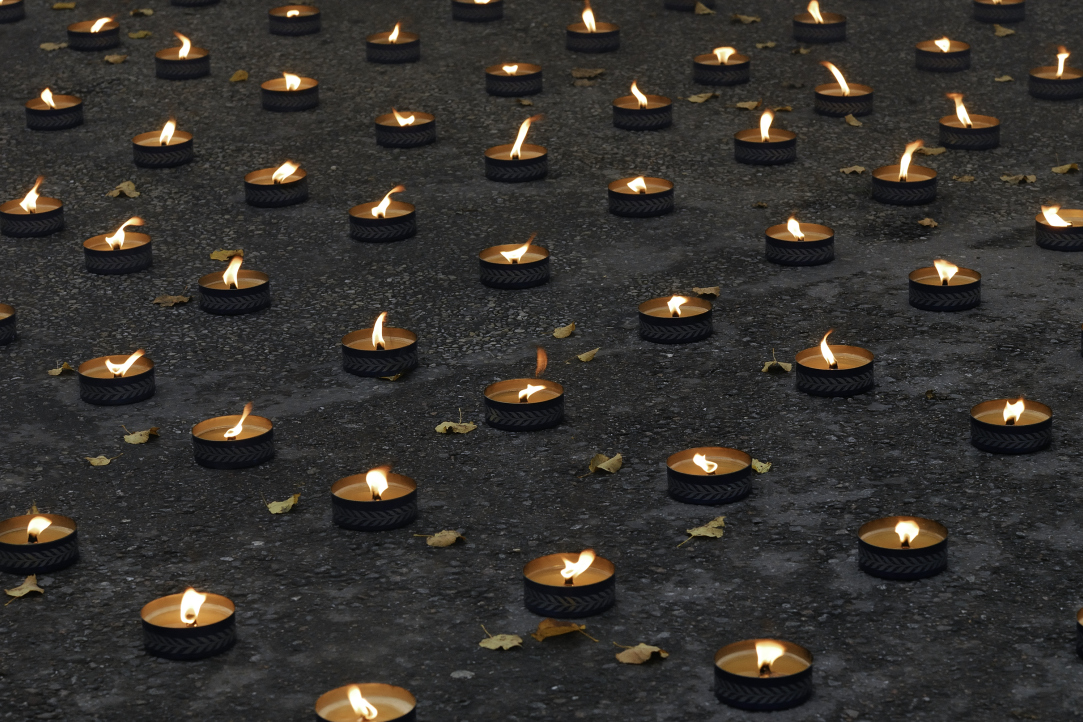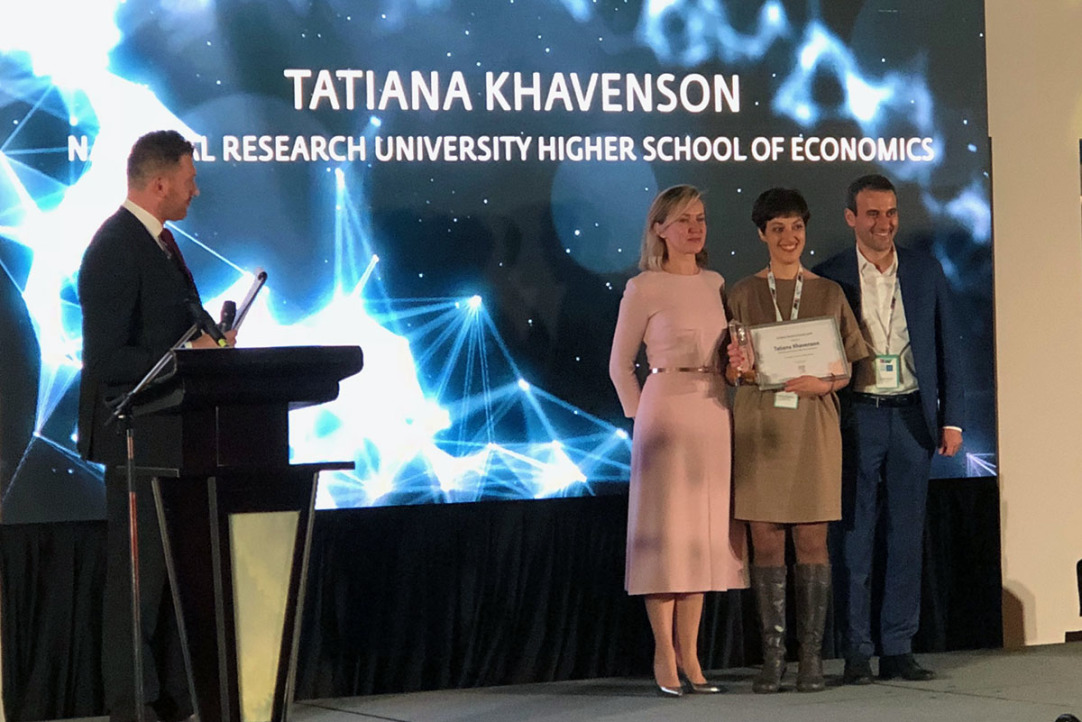
Universal Basic Income: ‘This Is the Golden Dream of Artistic Bohemians’
The book ‘Exploring Universal Basic Income. A Guide to Navigating Concepts, Evidence, and Practices’ was presented at an HSE University event, which was organized by the HSE Institute of Social Policy. During the event, participants noted the foundational nature of the publication prepared by the World Bank experts and held an emotional debate on the prospects of introducing a universal basic income.

‘Each of Them Survived Thanks to a Real Miracle’
Stories of Salvation, or How We Grew Up, a book co-authored by HSE Lyceum senior Elena Tsybulina, tells the stories of ghetto and concentration camp survivors during WWII. The book was released shortly before International Holocaust Remembrance Day, which is observed on January 27.

HSE Remains Leader in Russia by Number of Economics Research Papers
At the close of 2019, HSE University once again ranked first among Russian organizations in the RePEc/IDEAS (Research Papers in Economics) world ranking and advanced to a record-breaking 129th place. The ranking evaluates economic, academic, and research institutions based on their publication activity in economics.
Those Who Hate Cooking and Those Who Write about It
Indiana University Press (USA) recently published Seasoned Socialism: Gender and Food in Late Soviet Everyday Life, edited by A. Lakhtikova, A. Brintlinger and I. Gluschenko. In addition to serving as a volume editor, Associate Professor of the Faculty of Humanities of the School of Cultural Studies Irina Gluschenko authored the chapter, ‘”I Hate Cooking!”: Emancipation and Patriarchy in Late Soviet Film.’

Too Much Thought: How to Stop the Flow of Bad Academic Publications
Redundancy and crisis — these are the words higher education experts Philip G. Altbach and Hans de Wit use to describe the situation in the global market of academic publications. It has been largely caused by external factors, such as the rise of university rankings that focus on the number of research and papers and pressure by publishers. But universities’ behavior is also an explanation for the crisis. Many of them try to imitate research universities and produce lots of publications of widely varying quality, the experts said in their paper in the HSE journal International Higher Education.
HSE Academic Is Reviving the Spirit of Socrates
HSE Assistant Professor of Philosophy, Aaron James Wendland, recently launched a popular philosophy column in a prominent British Magazine: The New Statesman. In this interview, we ask Aaron about his research interests, his experience at HSE, and the rationale behind his new column on popular philosophy.

HSE Staff Members Get Scopus Awards as Most Cited Russian Scholars
The academic publisher Elsevier has given awards to Russian scholars with the best citation indices in the Scopus database of research publications. HSE is the university with the most winning scholars.

New RSCI List Includes 771 Academic Journals
The new list has been compiled by a working group on quality assessment and selection of journals in RSCI on the Web of Science platform. The list is available on the HSE website.
.jpg)
Robot Isaac Starts Working at HSE
Isaac, a new robot at HSE, will automatically process publications by HSE staff and make the results of various competitive campaigns more predictable for each employee.
Springer Nature, HSE and Skoltech to Publish Book Series in Mathematics
Moscow Lectures, a new series of books in English, is set to be published by Springer Nature. The series is issued jointly by HSE and Skoltech, and its Editor-in-Chief is Alexey Gorodentsev, Professor at the HSE Faculty of Mathematics. Twelve volumes are currently in preparation and the first volume will be published at the beginning of June 2018. The series builds on the outstanding research and education in the field of mathematics in Moscow. It is aimed at graduate and undergraduate students, as well as lecturers and researchers, across the globe.


Registration is open until April 1, 2025